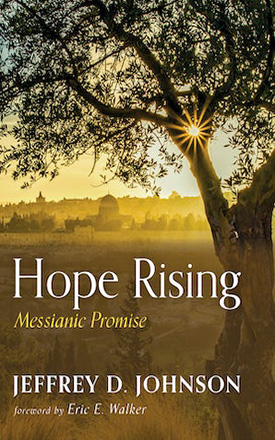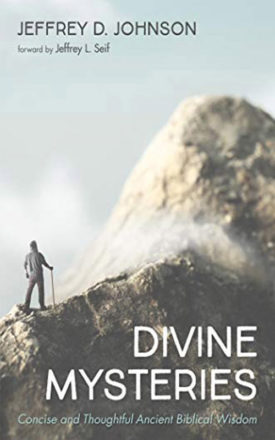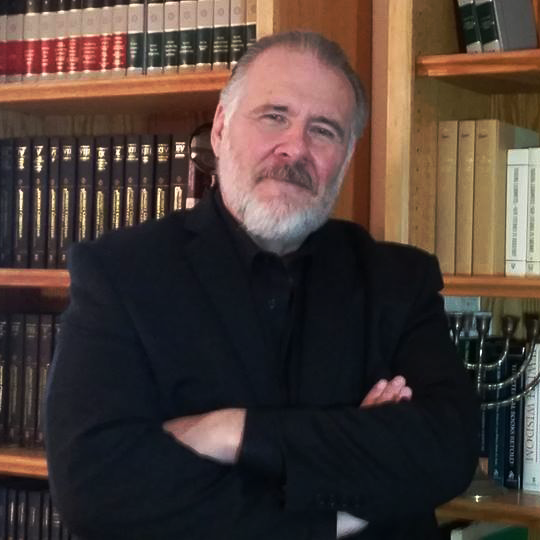Israel Today Resources:
-
 Hope Rising, Messianic Promise
Recommended donation: $20.00
Hope Rising, Messianic Promise
Recommended donation: $20.00
Add to cart
-
 Song of Song: The Greatest Lover
Recommended donation: $18.00
Song of Song: The Greatest Lover
Recommended donation: $18.00
Add to cart
-
 Divine Mysteries
Recommended donation: $15.00
Divine Mysteries
Recommended donation: $15.00
Add to cart
-

Q & A Regarding End Times, Israel and Messiah
Q. Â Based on your studies, what is your view on the timing of the Rapture?
A. First of all let’s look at the five main views on the Rapture.
1.    Partial Rapture Position: This view states that only believers who are faithfully watching and waiting for the Lord will be raptured at various times before and during the 7 – year Tribulation. Those who will be raptured are spiritually mature saints, both dead and living.
2.    Pre-Tribulation Rapture Position: Christ will come for his saints; afterward he will come with saints. The first stage is called the Rapture, the second stage called the Revelation. The Rapture is imminent and the church will not experience God’s wrath during the 7 – year Tribulation period.
3.     Mid-Tribulation Rapture Position: This view states the Church, believers in Christ, are raptured in the middle of the tribulation period prior to the Great Tribulation.
4.    Pre-Wrath Rapture Position: This view states that the tribulation period is divided into three stages found in the Olivet Discourse (1) Beginning of sorrows, (2) the Great Tribulation, and (3) Day of the Lord. The Rapture takes place between the Great Tribulation and the Day of the Lord, – the Day of the Lord is the time when God releases His wrath.
5.    Post-Tribulation Rapture Position: The rapture takes place at the Second Coming of Christ, which occurs at the end of the Tribulation. The spectrum of those believing in this view is broad, encompassing a period of time from the early church through the present age.
Regarding my view: The two positions worth consideration are the Pre-Tribulation & Post-Tribulation. Post, because historically this was the main view in Church history. Pre, because of greater understanding of end time events the last two-hundred years. Biblical arguments on both views are quite strong. Therefore, it is a matter of conviction, or preference. I prefer the view of a Pre-Tribulation Rapture. However, with that said, we should live and prepare as though the Church may go through the Tribulation. Simply, it is a matter of preference. Pray that it is “Pre” and plan in case it is “Post.”  One needs not to break fellowship with those embracing other views as it is a matter of preference.
Q. Why are their hungry children in Israel?
A. Israeli President Shimon Peres tweeted, “the fact that there are 800,000 hungry children in Israel is disturbing. If there are poor among us, it reflects on us as a society.”
On December 17, 2013 The National Insurance Institute released its 2012 annual poverty report revealing that one out of three children, live below the poverty line.
The country’s poor includes:
817,200 children (33% of minors)
180,000 elderly (23% of the elderly population)
Simply, Israel has a great military (they need a strong military), and in fact Israel export foods. However, high taxation, poor social infrastructure, division of society and being in a war zone all contribute to the poverty mentioned above.
Q. Is your ministry similar to John Hagee Ministry CUFI?
A. Similar, in that we both support and stand with Israel. CUFI has more of a political emphasis, whereas, ITM has more of a humanitarian and teaching emphasis.
Q. Do the children you feed also stay day and night?
A. The children stay during the day, 5-6 days per week. Israeli law requires the children only to remain during the day. These children are the fortunate ones. In the evening they return to their “home,”  – this truly is perplexing as most of the children’s environment is dysfunctional and at times dangerous. Unfortunately, this highlights the poor infrastructure mentioned above.
Q. What happens to the children when they reach a certain age?
A. When the children turn eight years of age they must leave the Yad B’ Yad (Hand in Hand) “warm homes.”  Many of the Arab children end up on the street, and some of the Jewish children will also end up on the street. Most of the Jewish children may have distant family, or neighbors that will take them in. Most of the Arab children are not so fortunate. Yad B’ Yad is the place ITM provides food and biblical educational material for the children ages 3-7. We have such a small window of time to reach these forgotten and abused children before they turn eight. This is why your prayers and support are urgently needed.
Q. As one considers the anti-Christ and false prophet, is it possible that they could be out of Islam [as] Islam intertwines the political sphere and religious sphere?
A. Regarding these two nefarious persons anything is possible. We know their characteristics as outlined in our lectures, however, no one knows who they are, or where they will come from. It is understood that in each generation Satan has potential candidates for the anti-Christ and false prophet since no one knows the day or hour that Christ will return, not even Satan knows. Therefore, Satan must have candidates in every generation, ready and prepared, for when Christ returns.
Q. You stated the Jewish year is 5774. What is significance about they year in relation to the seventh millennium and the Messiah?
A. The Jewish year 5774 reflects that this is the sixth millennium  (millennia = 1,000 years) of man’s time on earth. The Rabbis believe that Messiah will come at the close of the sixth millennium, and the beginning of the seventh. Therefore, the Rabbis are looking at the world’s events politically and militarily, in conjunction with the year 5774 and conclude Messiah is coming soon.
Q. Are the Jews looking for two messiahs based on Ezekiel 38 and following where there is the Messiah and the Servant?
Q. What is the foundation of the Rabbi’s beliefs in Ben David & Ben Joseph?
A. I will address the two questions above: There are two very distinct lines of prophecy in Scripture concerning the Messiah. One line depicts him as a suffering-saviour. The other line of prophecy depicts him as a conquering king-redeemer. Therefore, Jewish tradition speaks of two redeemers, or, two messiahs. Both are involved in ushering in the Messianic era. They are Messiah ben David and Messiah ben Joseph (“ben” means son of) [the Talmudic references (rabbinic commentaries) are Sukah 52b; Zohar 1:25b].
Messiah ben Joseph (Messiah the descendant of Joseph) of the tribe of Ephraim (son of Joseph) [Sukah 52a-b; Zohar 125b, 246b, 252b]. Ben Joseph’s function is of a political and military nature. He will wage war against the forces of evil. The immediate results of this war will be disastrous as Ben Joseph will be killed. Shortly thereafter Messiah ben David (son of David, the “seat” or “throne” of David), the “ultimate Messiah,” shall come, avenge his death, resurrect him, and inaugurate the Messianic era of peace [Pirkei Heichalot Rabaty, ch. 39]. Two messiahs, two personalities the rabbis are anticipating in regards to the suffering servant and reigning king. They do not understand that Jesus first came as the suffering servant (Isa. 52, 53), and will come again to be King. They are looking for two,  not one Messiah. Thus, we can understand how Israel will be duped by the two personalities, the anti-Christ & the false prophet.
All these events will unfold during the Gog/Magog War. Elijah, will also be part of the story announcing Messiah’s coming [Seder Olam Rabba, ch. 17; Shabbat 1:3; Zara 20b].
Q. A pastor interviewed on TV said American churches understand persecution. Really? Have read the Scriptures, but how do we “ready” for persecution? Would be interested in your thoughts on this. We don’t seek persecution, but we want to be faithful, and persecution of American Christians is realistic.
A. Â The Apostle Paul states, “Indeed, all who desire to live a godly life in Christ Jesus will be persecuted” (2 Tim. 3:12).
Persecution comes in various forms, such as, violent, aggressive hatred for Christians, as seen in the Middle East, Asia and Africa, or social shunning, and being looked upon with suspicion as we see here in the West. It is all persecution.
Here in the West, we must take advantage of our basic freedoms and maximize our opportunities to share the gospel. This, however, is predicated by living a godly life, following Jesus in everything we do.
How do we “ready” ourselves? We must decrease, He (Jesus) must increase in our lives. The cost is high. If you decide to follow Christ, I am talking about seriously following Christ, it will cost you something. Jesus laid out the terms for discipleship in Luke 14. This portion of scripture is sobering to read. Understand, to follow Jesus throughout your journey in life will be difficult. If you succeed you will understand that you are a pilgrim, passing through, and that the world is not comfortable with your Lord, nor you, if you walk the walk (Hebrew: Halakah).
Q. How does the Muslim 12th Imam (Muslim Messiah) fit into end times?
A. A good article was written, http://www.allaboutpopularissues.org/12th-imam.htm. Obviously, we may not agree with this organization’s every position, or content, nevertheless it is a good article that explains about the 12th Imam.  “See that no one leads you astray. For many will come in my name, saying ‘I am the Christ,’ and they will lead many astray” (Matt. 24:5).
Q. The Rabbis say the Torah will be observed,  does this mean the sacrifices and celebrations will be followed?
A.  The rabbis’ understanding of the Messianic era of peace parallels an Evangelical construct. Some of the “spiritual” characteristics of the Millennial Kingdom (When Christ rules and reigns for 1,000 years) involve things such as: [1] Universal worship (Isa. 19:21; 52:1, 7-10; Mal. 1:11; Zech. 8:23). [2] A rebuilt Temple (Ezek. 37:26-28; Ezek. 40-48; Hag. 2:7-9; Joel 3:18). [3] Return of the Shekinah glory (Ezek. 43:1-7; 48:35; Zech. 2:10-13; Jer. 3:17). [4] revival of sacrificial system (Ezek. 43:13-27; 45:13-25; Isa. 56:7). [5] Restoration of Sabbath and ritual feasts (Ezek 44:24; Zech. 14:16). [6] Spiritual obedience under the new covenant (Ezek. 36:25-28; 37; Jer. 31: 31-34). [7] Satan/demons bound; no spiritual deception (Rev. 20:1-3).
A theological problem arises regarding an alleged inconsistency between this interpretation and the New Testament concerning the finished work of Christ, which abolished the OT sacrificial system. J. Dwight Pentecost, in his book ?Things to Come? thoroughly addresses this subject in chapter 30, “Worship in the Millennium.” A good source to have in your library.
Shalom and Blessings,
Until He comes, we are
Together under His Wings,
Dr. Jeff
Time is short, Life is precious, and Jesus is coming soon!


